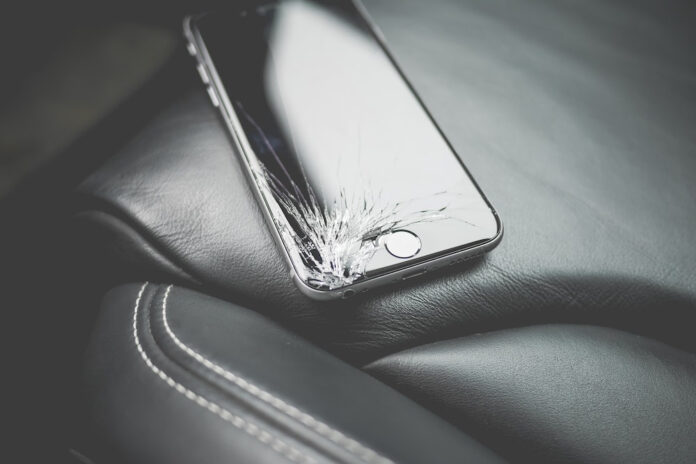Incentives and better consumer awareness could have an impact equivalent to 0.9% of the UK’s greenhouse gas emissions
We live in a throwaway age. The United Nations reports that electronic waste (e-waste) is the world’s fastest-growing waste area1. The UK is one of the worst offenders, with the world’s second-highest e-waste level per person2. Every UK household is estimated to have 20 unused electronic items3. In short, the UK is a nation of e-hoarders.
The telecoms industry can play a key role in tackling e-waste. Mobile phones are a good starting point. Many consumers expect a new device at the end of what is often a short-term contract, when there’s usually life left in their handsets. Once the replacement arrives, the old device is left to gather dust, along with other unused electronic items like DVD players, TVs, radios and laptops, USB sticks and headphones4.
A smaller carbon footprint
Rare metals and other expensive materials in electronic devices, especially gold, silver and platinum, can be lost for good if products aren’t recycled. Wastefulness increases pressure to mine the planet’s scarce natural resources. A circular-economy approach, based on the principles of reuse and recycling, steers this valuable waste away from landfill.
Changing consumer behaviour, encouraged by the technology sector, can make a significant difference. Asurion’s research shows that by extending the life of a smartphone, tablet or laptop device by 12 months, the carbon footprint of manufacturing replacement devices is reduced by an average of 99Kg of CO2e (carbon dioxide equivalent) per person – or over 4.5 million tonnes of CO2e across the UK. That’s equivalent to 0.9% of the UK’s total greenhouse gas emissions5.
Barriers to change
What’s stopping us from taking a huge step forward in tackling climate change?
Consumers’ misperceptions about what is meant by ‘old’ technology need to be addressed. The ready availability of electronic devices has created a ‘single-use’ mindset where it is often easier to get rid of products rather than try to repair or recycle them.
Even if people want to act in a more environmentally responsible way, it can be difficult to know how to recycle products. Research shows that many consumers are not aware of how to dispose of e-waste responsibly6.
Incentivising consumers
Device trade-ins and protection plans with tech support can build powerful momentum in the battle against e-waste.
Trade-in – where broken or unwanted devices in good condition can be traded in for cash or to contribute to a device upgrade – is already becoming a must-have offering. A good example is the London Waste and Recycling Board’s scheme that collects around 90,000 tonnes of e-waste recycling a year, mostly through retailer and distributor take-back activity7.
An alternative – or supplement – to product take-back programmes is a home-tech protection plan to extend the lifetime of devices. These often provide a comprehensive and cost-effective package of protection and support covering a range of services, including device maintenance, installation and repair.
There is a significant financial benefit to consumers who become eco-friendlier. Our research found that UK consumers could save over £400 by investing in support cover and extending the lifespan of their smartphone, tablet or laptop by one more year – and remembering to trade in their device at the end of that year. Across the UK, that adds up to more than £18.8 billion.
Five key actions for telecoms providers
A growing number of consumers, particularly younger people, are increasingly aware that they have a responsibility to reverse the environmental damage caused by e-waste. Meanwhile, the current cost-of-living crisis may already be encouraging people to think twice about constantly replacing products. As a result of these two factors, there is a growing need for accessible device repair or disposal services, and for more cost-effective and responsible ways to upgrade a device.
The telecoms industry can play its part in cutting e-waste and supporting a circular economy, by:
• Offering to repair customers’ device repair rather than replace them
• Offering customers simple incentives to recycle devices
• Sharing tips with customers on how to extends devices’ lifetime and optimise performance with a support plan
• Providing customers with affordable and flexible support for devices and protection options
• Finding ways to work with government to reduce e-waste and make bigger environmental gains.
Footnotes
[1] United Nations Institute for Training and Research (2020). The Global E-waste Monitor 2020 – Quantities, flows, and the circular economy potential. https://ewastemonitor.info/gem-2020/
2 uswitch. (2023). Mobile emissions. https://www.uswitch.com/mobiles/compare/sim-only-deals/mobile-emissions/
3 House of Commons Environmental Audit Committee. (2020).
Electronic waste and the Circular Economy.
4 See, for instance,
Virgin Media O2. (2022). Virgin Media O2 research reveals 15 million phones stashed in the attic as it launches £500,000 e-waste fund. https://news.virginmediao2.co.uk/virgin-media-o2-research-reveals-15-millions-phones-stashed-in-the-attic-as-it-launches-500000-e-waste-fund/
5 Office for National Statistics. (2022). Greenhouse gas emissions, UK: provisional estimates: 2021. https://www.ons.gov.uk/economy/environmentalaccounts/bulletins/greenhousegasintensityprovisionalestimatesuk/2021
6 Currys. (2022). Currys launches new ‘Long Live Your Tech’ customer commitment as UK faces growing e-waste problem. https://www.currysplc.com/news-media/press-releases/2022/currys-launches-new-long-live-your-tech-customer-commitment-as-uk-faces-growing-e-waste-problem/
7 UK Parliament. (2019). Written evidence submitted by the London Waste and Recycling Board. http://data.parliament.uk/writtenevidence/committeeevidence.svc/evidencedocument/environmental-audit-committee/electronic-waste-and-the-circular-economy/written/104340.html
Gavin Miller is CEO at Asurion Europe


